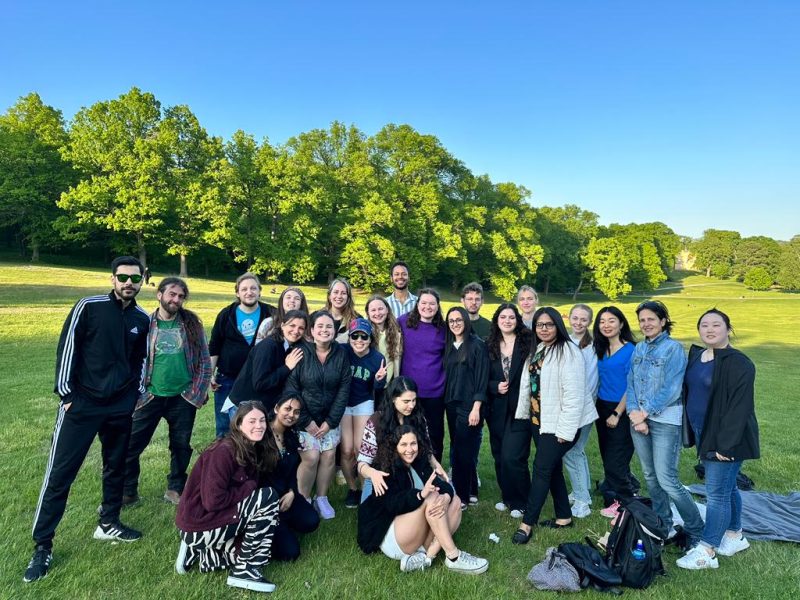
Plans for the second year! Master in Nutrition Science
With the first year coming to an end, many incoming Nutrition Science students have asked: “What can you do in your second year?” We are the first cohort with the new 2-year program and our second year is very flexible with many options (Have a look at the official website of our program). I could tell you my plan of staying at Karolinska Institutet for a 1-year thesis (Which I will do in the future 🙂 ). But with classmates who are going for exchange at partner universities, internship, or thesis abroad it is interesting to see what your option are! Therefore, I am going to introduce you to 5 of my classmates Cecillia, Valeria, Margaux, Noemi, and Raphaella!
Who are they?
First, we have Cecília. She is a medical doctor from Brazil and is now learning Swedish since coming to Sweden. Additionally, she enjoys dancing in the classes offered at our campus, going on cycling trips, and exploring European countries.
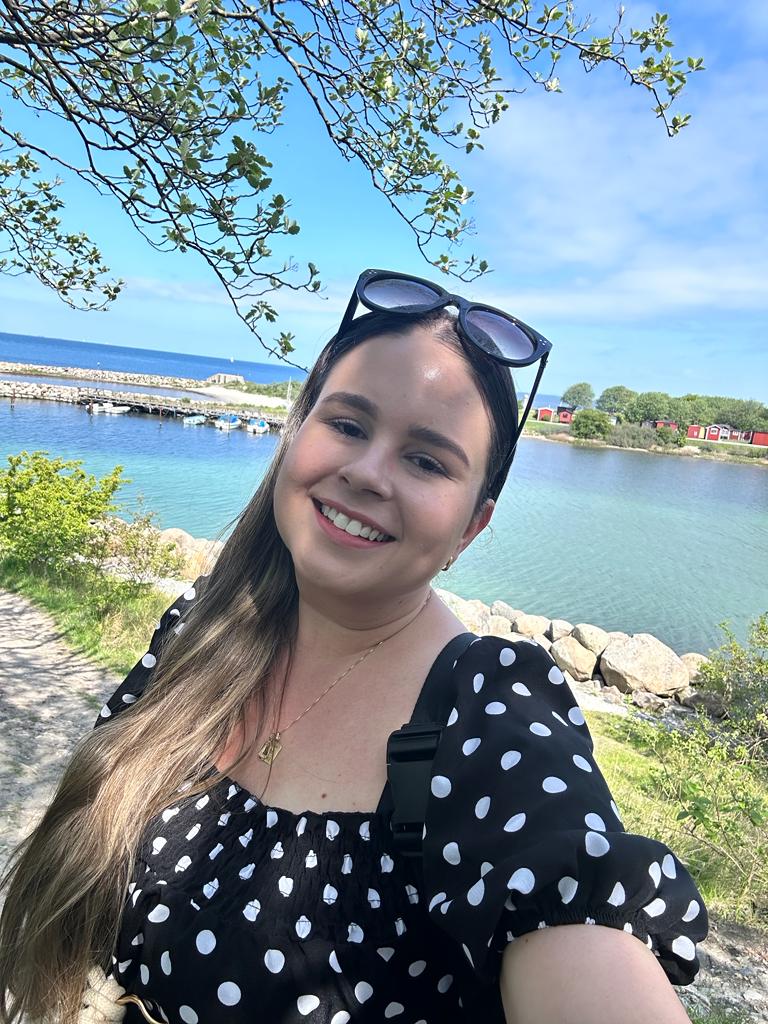
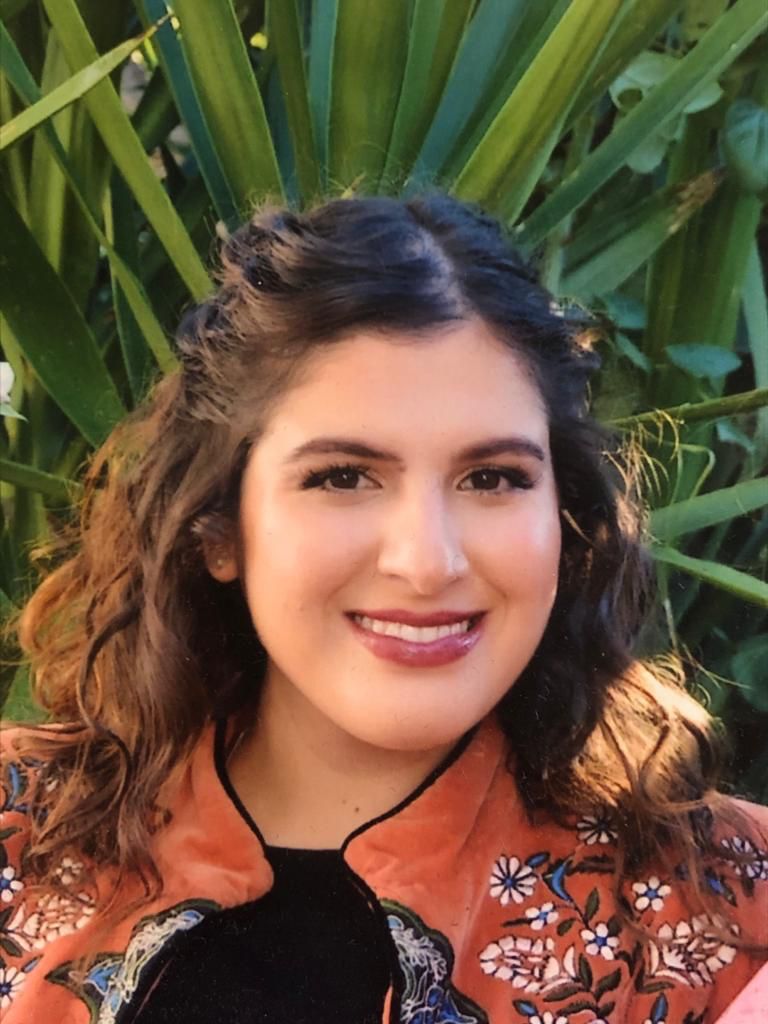
Next, we have Valeria! Born in Italy but hopefully soon receiving Swedish nationality finished a Master’s in Public Health before starting Nutrition Science. She spends her time outside the classroom working, practicing her Swedish, baking, or hiking in nature around the Flemingberg campus.
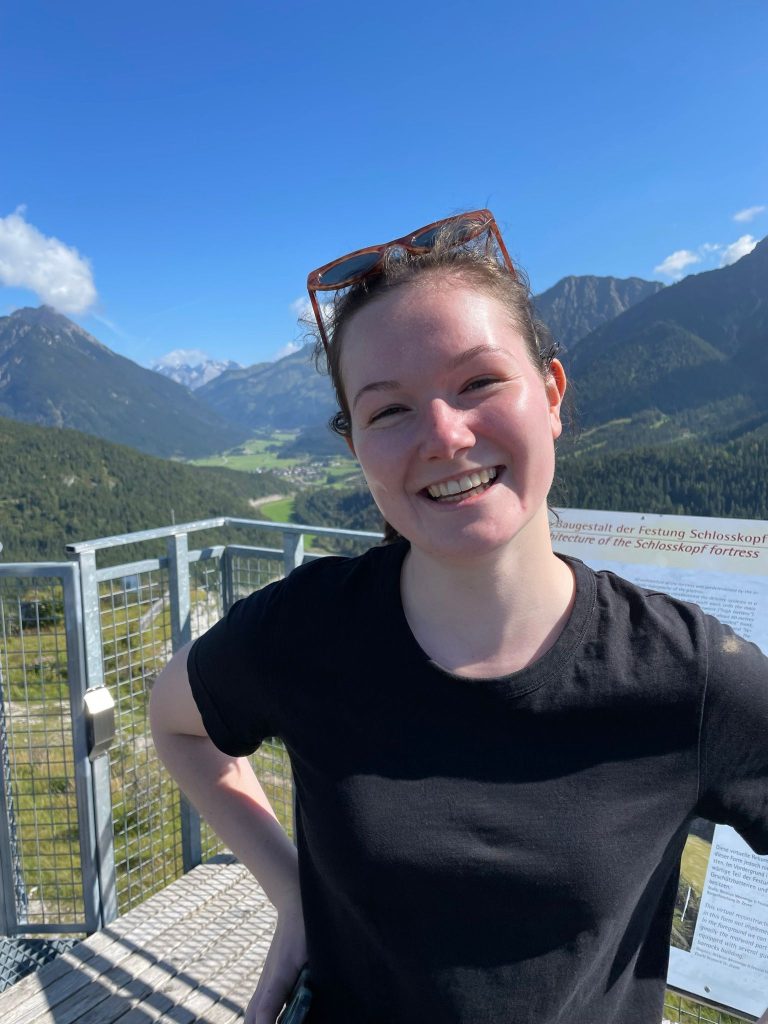
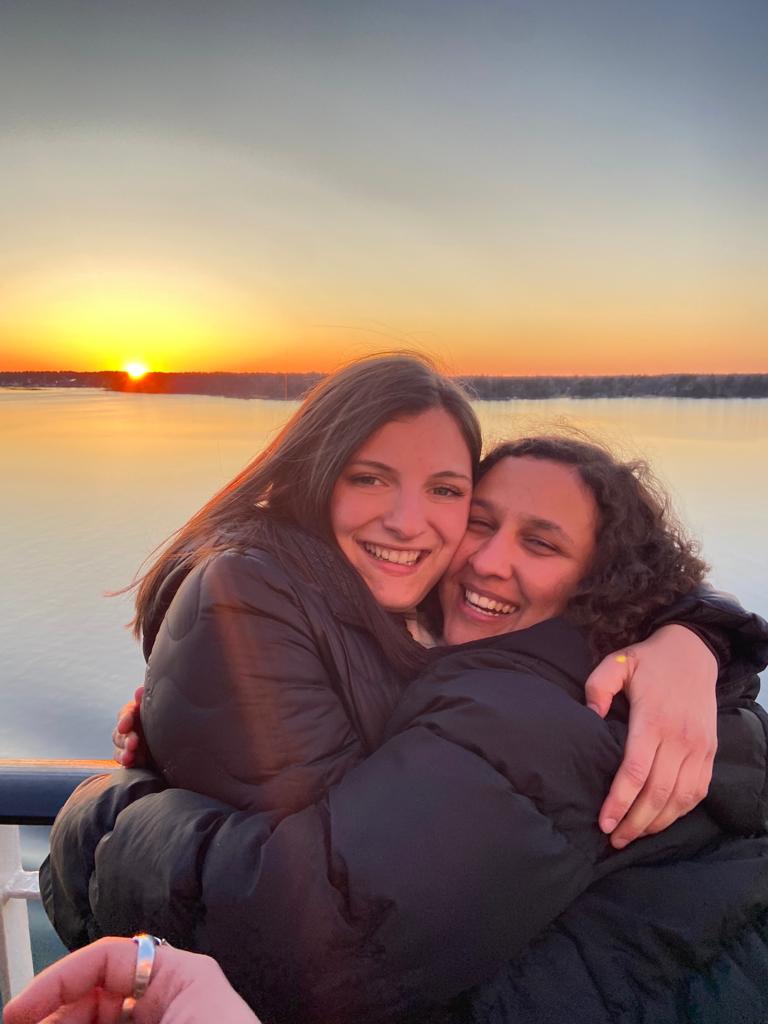
Margaux originally from Antwerp (Belgium) used to study biomedical sciences in the Netherlands. Outside of class time she engaged in the sustainable development committee at Karolinska Institutet and coached speakers at TEDxKI.
Raphaela part Portuguese and Brazilian studied biomedicine. In her free time, she practices yoga, hiking in nature, and likes to travel to new countries. She makes use of the free sport and gym at our campus.
Noemi was born in beautiful Venice (Italy) and studied dietetics before coming here. When she is not in class she enjoys hiking around nature parks, traveling with Raphaela, and practicing knitting.
What are you doing next year?
Cecelia
Full year thesis (60 credits) at Deakin University in Melbourne.
Valeria
I will be doing a project course (15 credits), a traineeship (15 credits) and finally a master’s thesis (30 credits).
Margaux*, Raphaela & Noemi
Exchange to Wageningen University during the first semester doing elective courses (30 credits), specifically a minor in bioinformatics & Food technology.
*Thesis (30 credits) at Solna Medicine department of KI focusing on the women’s health. Investigating the ‘connection between the cervical microbiome and the susceptibility to HIV in women based in Stockholm and Nairobi.
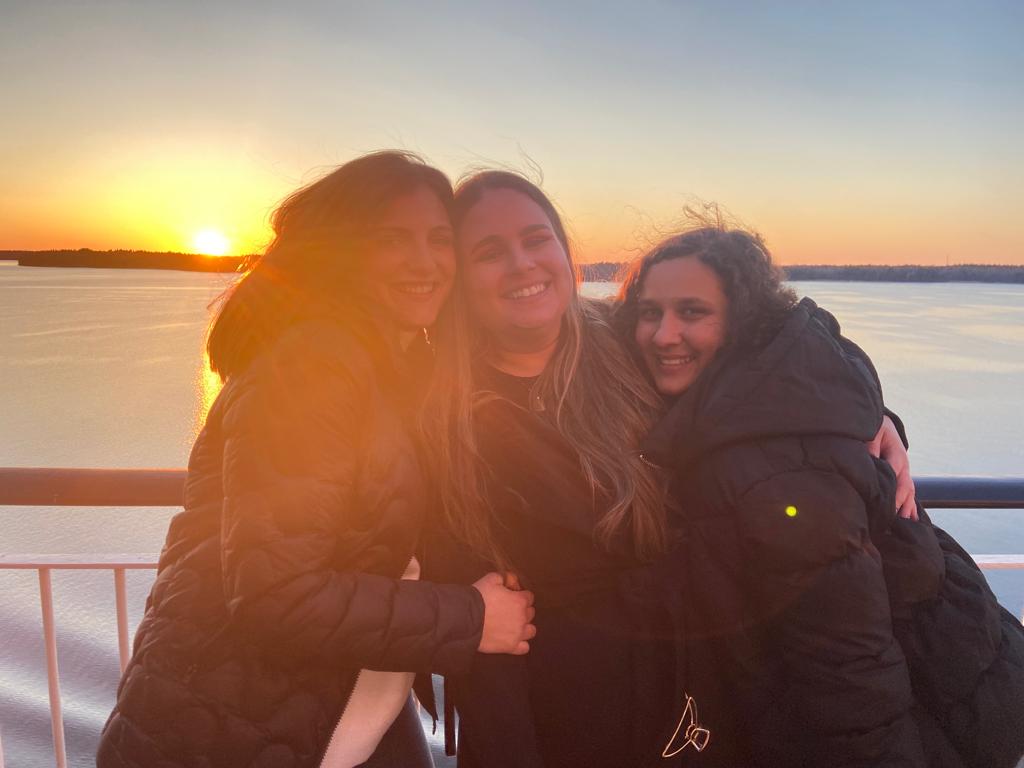
Why did you decide to do it?
Cecelia
For the amazing opportunity of going to Australia (never been there) and for boosting the CV with an exchange program outside Europe. Also for meeting new people, a new culture, and establishing some new work contacts. Living in a beautiful place full of interesting nature and sportive options to explore it.
Valeria
Because they are about different topics and require a wider skillset, so I am hoping to learn a lot from the different supervisors and their research groups.
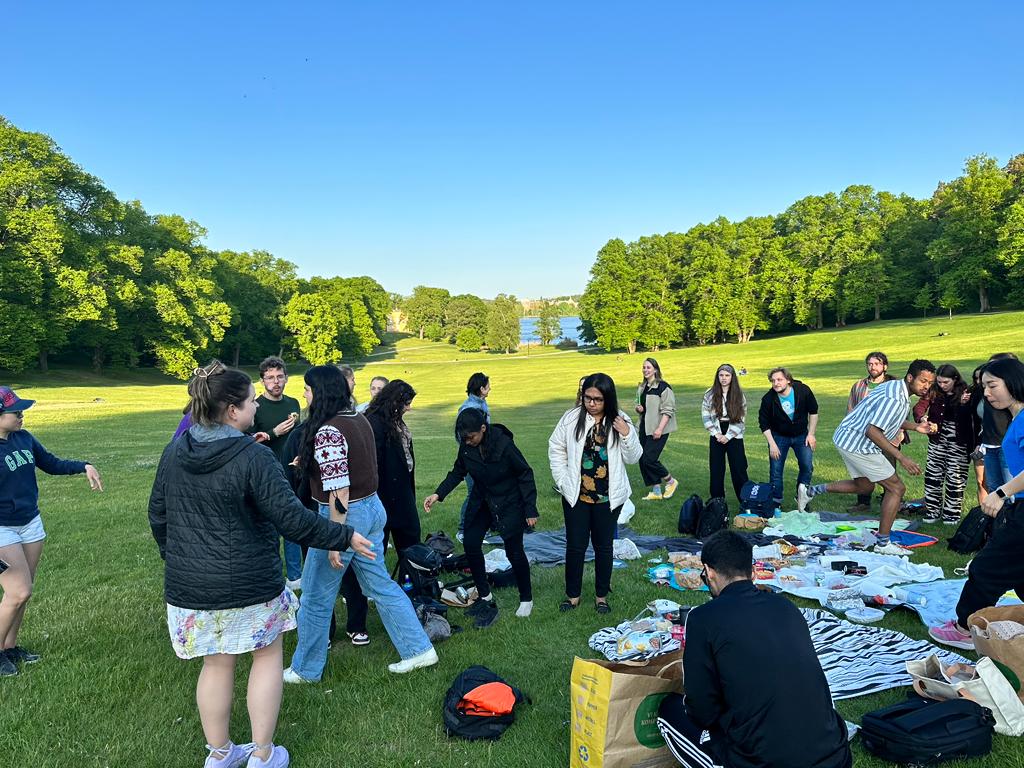
Noemi
First day of the MSc in Nutrition Science our course director talked about the possibility to go to Wageningen University in the Netherlands which is offering so many interesting courses that I could have taken to learn about one of my main interests and it was one of my dreams to live an experience in that country.
Margaux
I still wanted to continue “studying” and Wageningen University offers a wide range of very interesting courses. I’ve studied in the Netherlands before and really like the education they offer. A minor in bioinformatics will also definitely be a great addition to my skill set, especially in the area of microbiology (what I want to do) being able to handle big data is a big plus to your CV.
Raphaela
I want to work on food industry, so I think the courses offered on Food technology are interesting for me
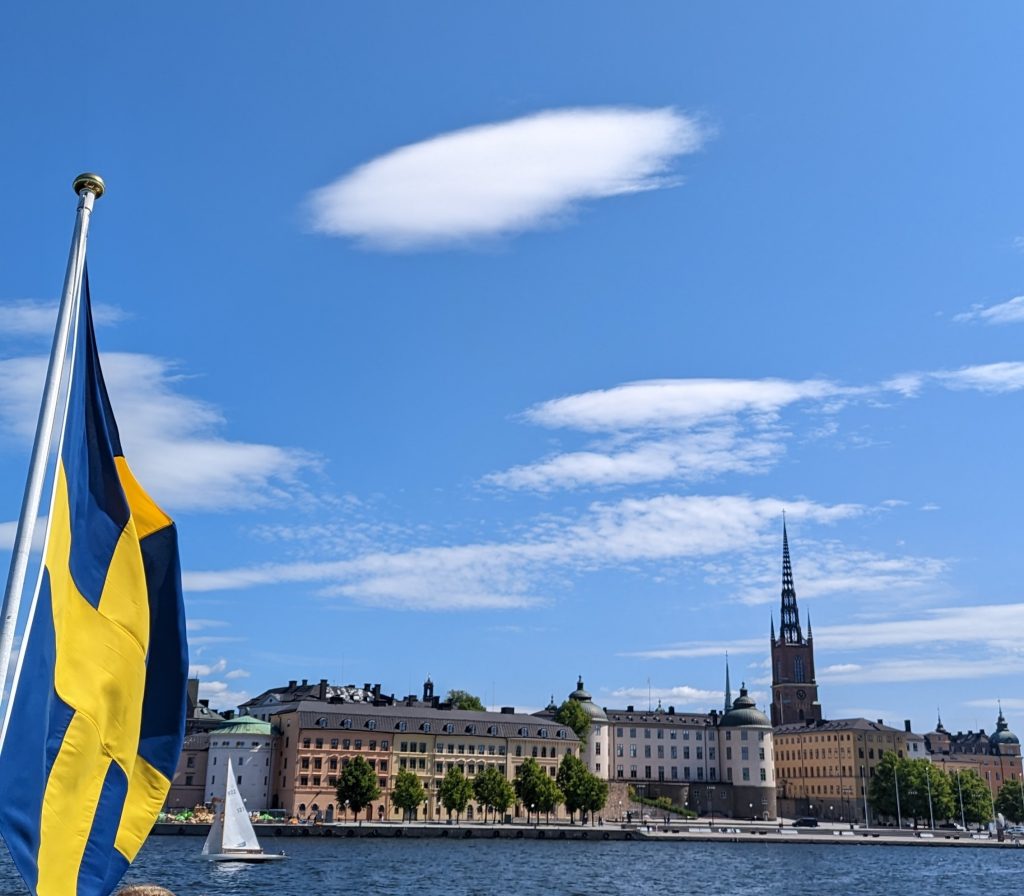
How did you find out about it?
How did you get in contact?
Cecelia
The thesis abroad at Deakin University is a program organized by our Nutrition Master at Karolinska Institutet that sends 1 to 2 people per year. I used the tips provided in Canvas and reached the research groups that I was interested in via the e-mails that I found at the Deakin’s/IPAN’s websites.
Valeria
In both cases, I contacted the researchers and notified them of my interest in collaborating with them.
Margaux*, Raphaela & Noemi
The exchange to Wageningen is a program organized by the nutrition master at KI that send 2 to 3 people per year.
*Emails, emails and more emails (got email addresses from the KI website which I scoured through for hours 🙂 looking at all the research groups)
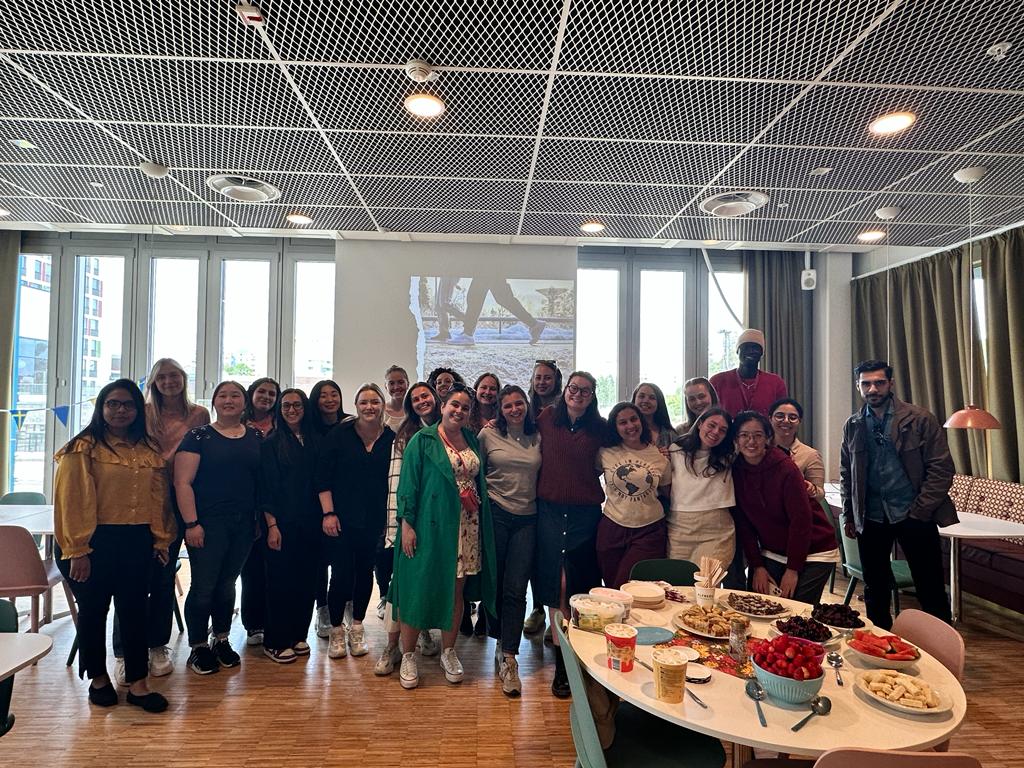
How was the application procedure?
Cecelia
I followed the instructions provided by KI’s website, then I received my approval from here, then I followed the procedure Deakin provided me once I was accepted by them. Now I’m applying for my visa and trying to find accommodation there.
Valeria
I had informal meetings, where the supervisors and I talked about the projects, my interests, and my background, to understand how independent my work could be.
Margaux, Raphaela & Noemi
The exchange application was a very smooth process, just via a KI portal that needed a motivation letter, CV and certificates of extracurriculars. After that it was choosing courses at Wageningen that match our previous skills.
Do you have any tips for incoming students?
Cecelia
Focus in your professional life, but don’t forget to have an enjoyable social experience too. Challenging yourself seems a great way to make the most of it, no matter how you do it.
Valeria
Seek out a mentor who can offer valuable guidance, support, and insights. While you may already have a specific field of interest, consider exploring new ones. By doing so, you might stumble upon other fascinating subjects that spark new interests.
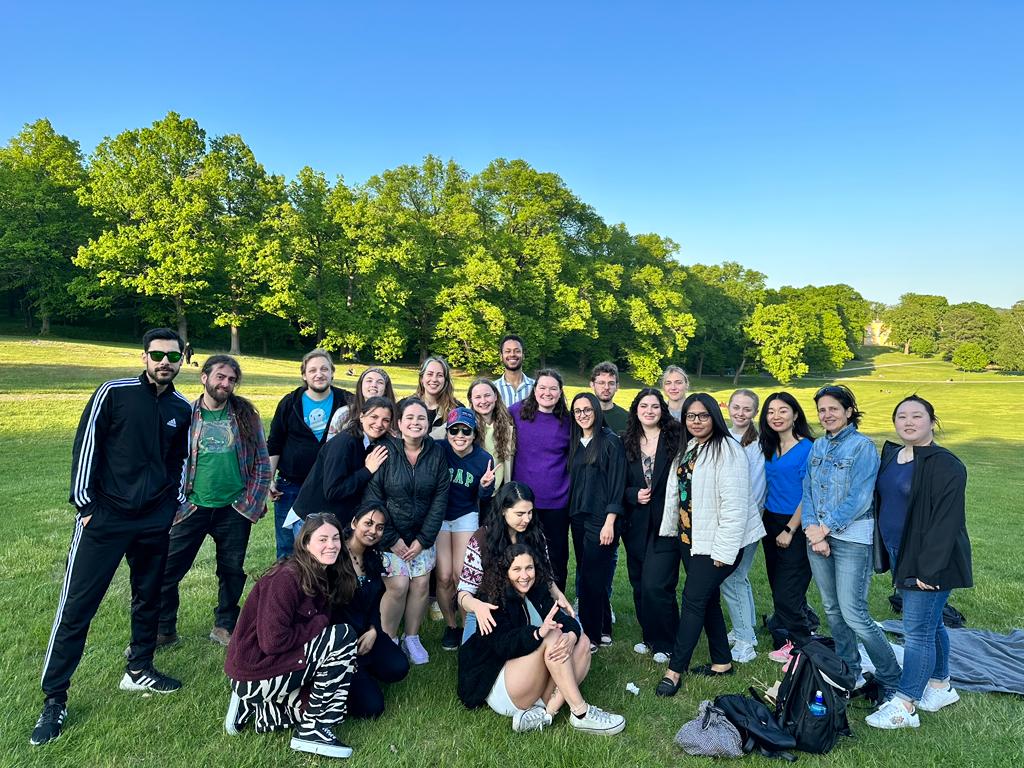
Margaux, Raphaela & Noemi
If you have some professors or others that you look up to and have a good relationship with asking them for some advice considering your future goals and plans, could be very helpful. I asked my bachelor thesis supervisor what he would prefer to see on a potential PhD candidates CV and that really helped me plan for the second year.
Also, I like the keep the motto in mind “you’ve got a no but you can get a yes”
Oh and when emailing researchers for internship positions make sure to keep your emails professional but still personal, why are you interested in their research and why should to choose you to join their team. And lastly make sure to add a CV and any publications you have to your emails.
Lastly, I would say to keep an eye on KI’s website because KI offers so many good services and it has many opportunities!
I hope this insight helped you to have an idea what you could do in the second year. Always check with the official websites since our program could change or new options become available.
If you have any questions feel free to reach out to me via email or by commenting down below!
-Tade

Tade - Nutrition Science
I am Tade. I am Nigerian/German and the blogger for the Master’s Programme in Nutrition Science. Before KI, I was studying in the Netherlands. My whole life I was interested in food and sports, and that is why I decided to study nutrition. When I learned about KIs group-focused teaching and the international environment I knew where I wanted to go. When I am not exploring or trying different foods I am playing basketball in Solna. If you are ever up for the challenge, you know where to find me!

1 comments